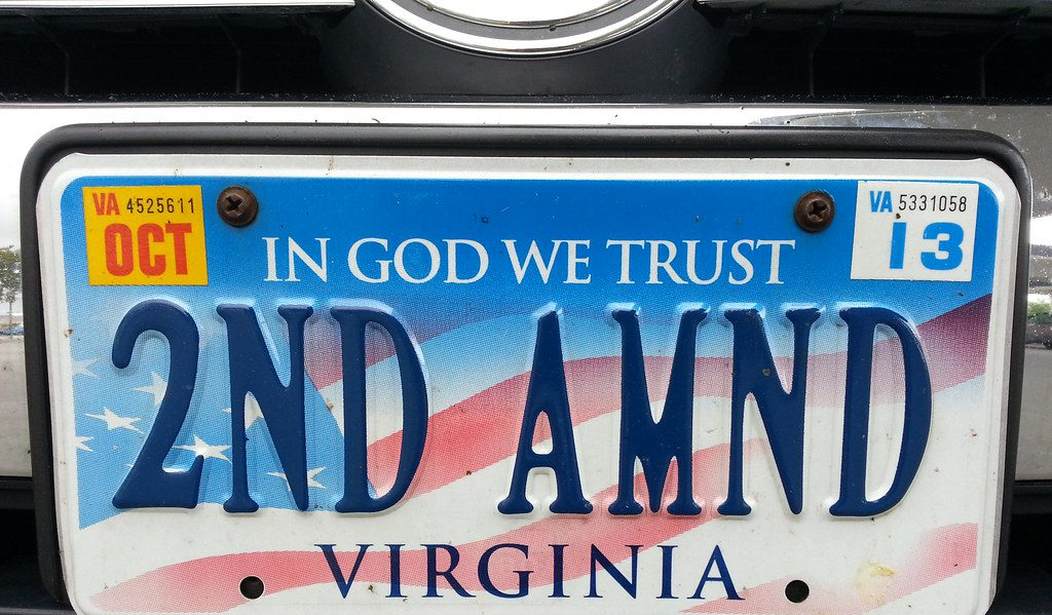We’re less than a month away from Election Day here in my home state of Virginia, with control of both chambers of the General Assembly up for grabs. Currently Democrats hold a narrow majority in the state Senate, while the House of Delegates has a slim Republican advantage thanks to GOP wins in 2021, which not only put the GOP back in charge of the House but gave Republicans control of all statewide offices from governor to attorney general.
One of the factors that contributed to those big GOP wins two years ago was the backlash to the Democrats’ attempt to impose a ban on semi-automatic rifles; an effort that died before reaching the desk of then-governor Ralph Northam, but still energized gun owners throughout the Commonwealth. Republicans made gains in most areas of the state compared to the 2019 elections, but their margin of victory was particularly high in the rural parts of the state, which has led to some handwringing and a wee bit of soul-searching from some on the left who wonder how they can make inroads with rural voters.
Former Democratic congressional candidate Anthony Flaccavento thinks he has the answer. In a new column, the progressive activist and executive director of the Rural Urban Bridge Initiative claims that a “Rural New Deal” can both woo rural voters back towards Democrats while “defusing” culture war issues.
Over the past 40 years or so, bad trade deals like the North American Free Trade Agreement (NAFTA) and the corporatization of farming have hollowed out once thriving rural communities. The federal government, meanwhile, has failed to invest adequately in rural infrastructure and community development. And, too often, progressives have looked the other way — or worse. In that vacuum, right-wing media and politicians have preyed very successfully on rural despair and anger. Besides the enormous harm it has done to those communities, this failure by progressives and the resulting loss of trust has brought our politics to an ugly stalemate, precluding the possibility of bold, and desperately needed, action on climate change, wealth inequality, racial justice and more.
While many on the Left argue about whether it’s culture or economics that has driven the rightward shift among rural voters (which, by the way, long predates the Trump era), those of us who live in these communities know it’s both. We can rebuild this lost trust only by championing rural and working-class communities. This does not mean putting economic issues above cultural ones — it’s how we build the kind of bedrock trust that allows us to actually change minds on things like gay marriage and transgender rights, to defuse these culture-war weapons that the Right has wielded so devastatingly.
What might happen if millions of people, our fellow citizens in the countryside, began to believe that we progressives understood their frustrations, that we had their back? Might the “politics of resentment,” as Kathy Cramer has described it, lose some steam when we stop dismissing the grievances of rural people and instead invest in the health of their communities and the strength of their economies?
First of all, you can’t convince rural voters that you have their backs when you’re trying to change their minds. At best, Flaccavento’s recommendation reeks of elitist paternalism, though it could also be seen as just another attempt to dupe the rubes into voting against their self-interest.
Though Flaccavento lives in southwest Virginia and should be well aware of the role that the Democrats’ insistence on gun control played in losing the rural vote by historic margins in 2021, he doesn’t bother to even acknowledge that the Democratic Party is woefully out-of-step with rural voters when it comes to the right to keep and bear arms. Even when some Democrats in the state have admitted that support for gun control is costing them votes, their answer has been to change up their messaging, not the policies themselves.
There’s another big problem with Flaccavento’s argument that he knows best how to win over rural voters in the state: all the evidence points to the contrary. When Flaccavento first ran for Congress in 2012, he was smoked by Rep. Morgan Griffin 61.3%-38.6%. Flaccavento ran against Griffin again in 2018, but fared even worse the second time around, with Griffin handily winning reelection with 65.8% of the vote. Flaccavento only pulled in 34.8% of the vote five years ago, and had almost 40,000 fewer votes overall than he did in 2012.
If Flaccavento had the answer to winning back rural voters, you’d think he would have been able to at least keep his election bid competitive instead of getting crushed by the same Republican by an even larger margin during his second campaign.
I’ve only lived in rural Virginia for eleven years, so I’m hardly an expert, but based on the folks I know there’s no way they’re voting for a Democrat as long as that party insists on stripping them of their right to keep and bear arms or treating lawful gun ownership as a problem instead of a constitutionally-protected right. If Democrats want to be competitive in rural America they’re going to have to drop their support for gun control. I think the party bosses would much rather lose every rural seat in the United States than give up their dream of disarming we the people, and I expect we’ll see another round of crushing defeats for Democrats in rural Virginia when the results of this year’s elections are tabulated.








Join the conversation as a VIP Member